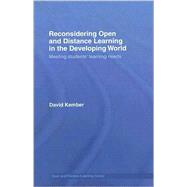
Note: Supplemental materials are not guaranteed with Rental or Used book purchases.
Purchase Benefits
What is included with this book?
| Introduction | |
| Modes of Learning in Post-Secondary Education | |
| Adult Education | |
| Open Learning | |
| Distance Education | |
| Flexible Learning | |
| E-Learning | |
| Major Themes in Student Learning | |
| Approaches to Learning | |
| Contextual Influences on Approaches to Learning | |
| Maturity and Approaches to Learning | |
| Teachers' Beliefs about Teaching | |
| Students' Beliefs about Teaching Learning and Knowledge | |
| Development of Capabilities for Lifelong Learning | |
| The Relationship between Student Learning and Models of Retention | |
| Open Learning | |
| Open AccessThe Roots of Open Education in Adult Education | |
| Open Entry as a Philosophy | |
| Has Advantage Been Taken?Higher Degrees for Professional Development | |
| Experiment with Open Learning for Adolescents | |
| Need for Open Entry in Developing Countries | |
| Entry to University: East versus West | |
| Characteristics of those Denied Entry | |
| Completion Rates | |
| Other Elements of Openness | |
| Freedom of Location | |
| Freedom of Time | |
| Freedom to Choose Courses | |
| Adult Learning | |
| Pedagogy and AndragogyAndragogy as a Concept | |
| Autonomy of Adult Learners | |
| Developing Autonomy | |
| Open Universities Expect Andragogy but Schools Teach Pedagogy | |
| Students' Conceptions of Teaching and Learning | |
| Influence of Schools on Conceptions of Learning | |
| Conceptions of Good Teaching as a Function of Conceptions of Learning | |
| Changing Conceptions of Teaching and Learning | |
| Distance Education | |
| The UKOU Model: How Appropriate is it for the Developing World? | |
| UKOU Model of Distance Education | |
| Learning Assumption of the Model | |
| Mis-Matches between Assumptions and Conceptions of Learning | |
| Analogy to Learning to Swim | |
| Outcomes of the Mis-Matches | |
| Dual Mode: The Separation of the Modes | |
| Face-to-Face and Distance Learning | |
| Equivalent but Separate | |
| The US Model: Transmissive Teaching by Another Medium | |
| North American Model of Distance Education | |
| Conceptions of Teaching | |
| Effect of Didactic Teaching on Learning Outcomes | |
| The Loneliness of the Distance LearnerThe Effectiveness of Peer Learning | |
| Peer Learning in Confucian-Heritage Societies | |
| Effect of Open Course Choice on Peer Learning | |
| Flexible and e-Learning | |
| E-LearningCourse Management Systems | |
| Value of Communication Function for Distance Education | |
| On Campus: A Technology in Search of an Educational Function | |
| E-Learning | |
| Virtual Universities | |
| Flexible Learning: But How Flexible?Flexible Learning: What Does it Really Mean?Could Flexible Learning Help Learners Develop Autonomy? | |
| ConclusionNeed for Research into Student Learning | |
| Need to Adapt Systems to Context | |
| The Influence of Conceptions | |
| Need for Developing Leaner Autonomy | |
| Table of Contents provided by Publisher. All Rights Reserved. |
The New copy of this book will include any supplemental materials advertised. Please check the title of the book to determine if it should include any access cards, study guides, lab manuals, CDs, etc.
The Used, Rental and eBook copies of this book are not guaranteed to include any supplemental materials. Typically, only the book itself is included. This is true even if the title states it includes any access cards, study guides, lab manuals, CDs, etc.